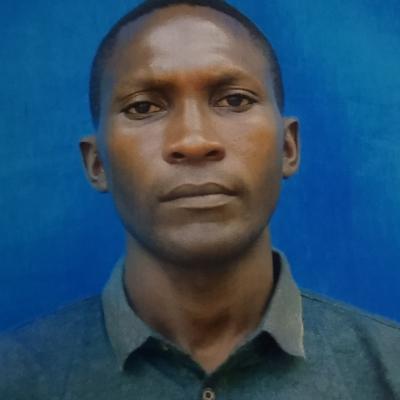
January Jocktan Wegoro
Biography
January Wegoro is a marine scientist and laboratory scientist at the Institute of Marine Sciences (IMS), University of Dar es Salaam. He holds an MSc in Aquatic Sciences and a BSc in Aquatic Sciences and Fisheries from the University of Dar es Salaam. He focuses on seagrass restoration, the biodiversity of fish larvae, and the conservation of coastal ecosystems.
Wegoro has conducted extensive research on seagrass restoration, particularly assessing the effectiveness of plug and sprig planting methods. He has also contributed to seagrass mapping along the Tanzanian coast using GIS and remote sensing techniques. His work provides valuable insights into marine habitat conservation and ecosystem resilience.
At IMS, Wegoro plays a key role in biodiversity assessments and restoration ecology. He collaborates with various stakeholders to promote sustainable fisheries and habitat conservation. His work supports ongoing efforts to restore degraded marine ecosystems and ensure the sustainability of coastal resources. With a strong commitment to marine conservation, Wegoro continues to contribute to scientific research and practical restoration initiatives that enhance the health and productivity of Tanzania’s coastal and marine environments.
Research Interest
My primary research focus is seagrass restoration, where I assess various restoration techniques, ecosystem resilience, and habitat recovery. My work involves evaluating the effectiveness of different planting methods and exploring ways to enhance seagrass restoration efforts. Additionally, I am deeply engaged in coastal ecosystem conservation, investigating strategies to protect and restore critical marine habitats. His research also extends to biodiversity assessment, conducting ecological surveys and mapping to monitor the diversity and health of marine species
Another key area of my expertise is fish larvae biodiversity and fish reproduction, which is my PhD area of study. My PhD research aims to understand fish larvae community composition, spawning patterns and how climatic and oceanographic changes affect fish reproduction. Additionally, I explore fisheries ecology, examining sustainable management approaches to support fish stocks and marine resource conservation.
I also integrate advanced technology into my research, including GIS and remote sensing for mapping seagrass and coastal habitats. My expertise in benthic image annotation allows me to analyze underwater imagery for habitat classification and species identification. As a skilled diver and swimmer, I actively participate in underwater fieldwork, using direct observation techniques to enhance ecological research.
Contacts
Email:
Projects
Marine Benthic Ecological Survey and Mapping in Tanzania (2023)
This was a project under Asasi ya Uwezeshaji Tanzania (ASUTA) and TAFIRI funded by USAID, this project aimed to assess and map benthic habitats (Coral, seagrasses and bare habitats) along the Tanzanian coast. As a benthic ecologist, I was responsible for analyzing seafloor habitats, species diversity, field works and ecological health
Underwater Image Processing and Annotation (2023)
An independent consultancy (UDSM-UCB/IMS/23120) under the Marine Benthic Ecological Survey and Mapping project, this work focused on analyzing and annotating underwater images to classify benthic habitats. The project involved processing benthic imagery, identifying key species and substrate types, and providing scientific insights for habitat mapping.
Seagrass Habitat Restoration and Net Gain Programs for Tanga Region (2024-2028)
A long-term consultancy project (UDSM-UCB/SoAF/24046) under the East African Crude Oil Pipeline (EACOP) initiative, this work involves designing and implementing seagrass restoration strategies in Tanga. As a team member, I contribute to habitat restoration planning, field implementation, and monitoring to ensure ecological sustainability.
MASMA – Assessing the Best Seagrass Restoration Techniques (2020-2022)
This research aimed to evaluate different seagrass restoration methods along the Tanzanian coast. The study compared techniques such as plug and sprig planting to determine their effectiveness in enhancing seagrass recovery and ecosystem resilience
MASMA – Ecosystem-Based Protection of the Coastal Zone (2019-2022)
Funded by WIOMSA, this project investigated the role of seagrass meadows in coastal erosion management. As a team member, I contributed to field assessments, Seagrass mapping along the coast of Tanzania and data analysis to understand how seagrass beds help stabilize coastlines and protect against erosion.
Publications
January Wegoro, Siajali Pamba, Rushingisha George, Yohanna Shaghude, Johan Hollander, Blandina Lugendo (2022). Seagrass restoration in a high-energy environment in the Western Indian Ocean. Estuarine, Coastal and Shelf Science journal: https://doi.org/10.1016/j.ecss.2022.08119
Lugendo Blandina , January Wegoro, Yohana Shaghude, Siajali Pamba, Mabula Makemie and Johan Hollander (2024). Seagrass mapping across the coast of Tanzania. Ocean and Coastal Management Journal: https://doi.org/10.1016/j.ocecoaman.2024.107169
Mwanahija S. Shalli a , Marcelina Mushi , Blandina R. Lugendo , Yohana W. Shaghude, January Wegoro , Johan Hollander (2025). Coastal communities’ perceptions on coastal erosion and the protective role of seagrass meadows in Dar es Salaam, Tanzania. Marine Policy Journal https://doi.org/10.1016/j.marpol.2024.106428
Blandina R. Lugendo, Rushingisha George, January Wegoro, Siajali Pamba, Yohana Shaghude, Mwanahija Shalli & Johan Hollander (2024). Seagrass Restoration Guidelines for Tanzania. WIOMSA Book Series No. 19. WIOMSA. Pp viii + 23.
January Wegoro, Blandina Lugendo, Siajali Pamba and Johan Hollander (2021). Seagrass restoration successful in Tanzania. WIOMSA Science News



